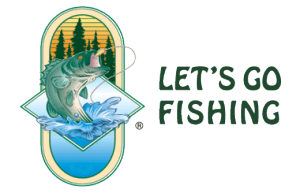Feelings of loneliness and isolation can lead to serious consequences for senior health. Understanding the causes and risk factors for senior isolation can help us prevent it.
Nobody relishes the prospect of aging without a spouse or family member at their side, without friends to help them laugh at the ridiculous parts and support them through the difficult times. Yet, that is just what many North American seniors face. As the baby boomer generation crosses the over-65 threshold, it grows; but many of our aging loved ones are still feeling alone in the crowd.
Statistics on Senior Isolation
According to the U.S. Census Bureau 11 million, or 28% of people aged 65 and older, lived alone at the time of the census. As people get older, their likelihood of living alone only increases. Additionally, more and more older adults do not have children, reports the AARP, and that means fewer family members to provide company and care as those adults become seniors.
While living alone does not inevitably lead to social isolation, it is certainly a predisposing factor. Yet another important consideration is how often seniors engage in social activities.
Statistics Canada reports that 80% of Canadian seniors participate in one or more social activities on a frequent basis (at least monthly) — but that leaves fully one-fifth of seniors not participating in weekly or even monthly activities.
Social contacts tend to decrease as we age for a variety of reasons, including retirement, the death of friends and family, or lack of mobility. Regardless of the causes of senior isolation, the consequences can be alarming and even harmful. Even perceived social isolation — the feeling that you are lonely — is a struggle for many older people. Fortunately, the past couple of decades have seen increasing research into the risks, causes, and prevention of loneliness in seniors.
Here are 20 facts about senior isolation to help you stay informed:
1. Senior isolation increases the risk of mortality.
According to a study in the Proceedings of the National Academy of Sciences, both social isolation and loneliness are associated with a higher risk of mortality in adults aged 52 and older.
One possible explanation: “People who live alone or lack social contacts may be at increased risk of death if acute symptoms develop, because there is less of a network of confidantes to prompt medical attention.” Efforts to reduce isolation are the key to addressing the issue of mortality, said the study’s authors.
2. Feelings of loneliness can negatively affect both physical and mental health.
Regardless of the facts of a person’s isolation, seniors who feel lonely and isolated are more likely to report also having poor physical and/or mental health, as reported in a study using data from the National Social Life, Health, and Aging Project.
Connecting seniors with social resources, such as senior centers and meal delivery programs, is one way to combat subjective feelings of isolation.
3. Perceived loneliness contributes to cognitive decline and risk of dementia.
Dr. John Cacioppo, a neuroscientist and psychologist at the University of Chicago, has been studying social isolation for 30 years. One frightening finding is that feelings of loneliness are linked to poor cognitive performance and quicker cognitive decline.
We evolved to be a social species, says Dr. Cacioppo — it’s hard-wired into our brains, and when we don’t meet that need, it can have physical and neurological effects.
Read the full article at http://www.aplaceformom.com/blog/10-17-14-facts-about-senior-isolation/


